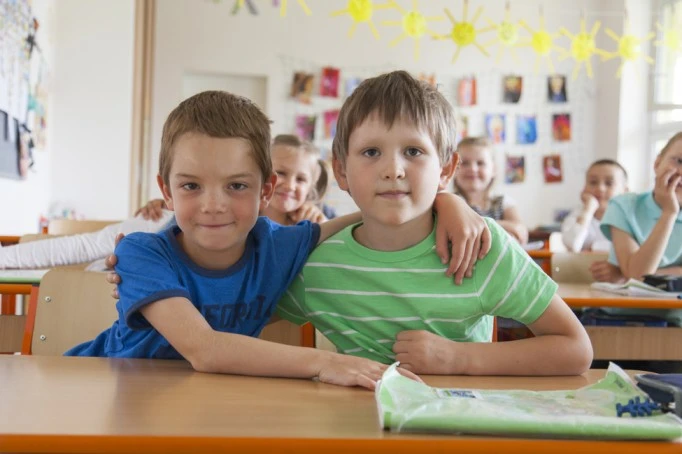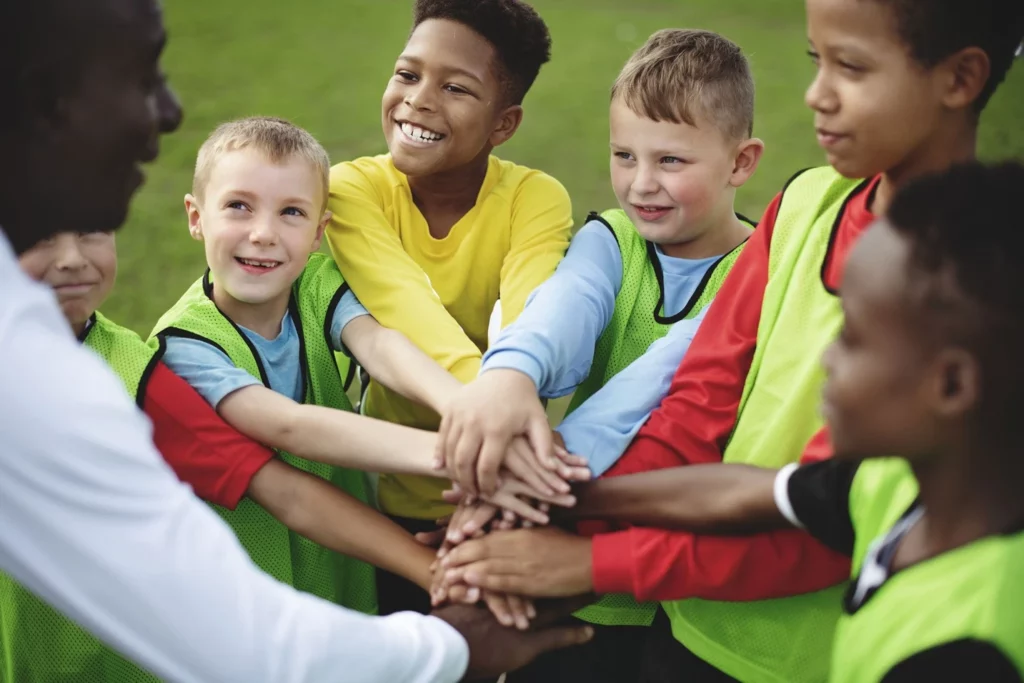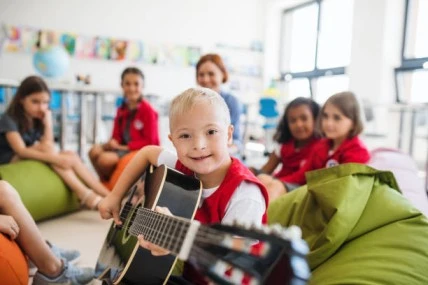Contents
In this article, you will gain valuable insights into practical strategies and techniques to effectively develop social skills in children with special needs, empowering them to navigate social interactions more confidently. Furthermore, you will discover how cultivating social skills in your child can have a positive impact on their overall emotional and mental well-being, fostering greater self-esteem and building meaningful relationships. As a parent or caregiver, you will also receive supportive guidance, equipping you with essential knowledge and resources to support your child’s social development and provide them with the necessary guidance and encouragement they need. In the following lines, you will:
- Gain valuable insights: Learn practical strategies and techniques to effectively develop social skills in children with special needs, empowering them to navigate social interactions more confidently.
- Enhance their child’s well-being: Discover how cultivating social skills in children with special needs can positively impact their overall emotional and mental well-being, fostering greater self-esteem, and building meaningful relationships.
- Supportive guidance for parents and caregivers: Acquire essential knowledge and resources to support your child’s social development, equipping you with the tools to provide them with the necessary guidance and encouragement they need.
Many parents and caregivers of children with special needs often face challenges in developing their child’s social skills. These children may struggle with communication, social interactions, and building relationships, which can impact their overall well-being and future prospects.
The consequences of inadequate social skills in children with special needs can be significant. They may experience feelings of isolation, difficulty making friends, and challenges in school or other social environments. These difficulties can hinder their personal growth and limit opportunities for meaningful connections and experiences.
This blog post will provide valuable guidance and insights to help parents and caregivers effectively develop social skills in children with special needs. By reading this post, you will:
- Discover effective strategies: Learn practical techniques and evidence-based approaches to nurture social skills in children with special needs. Gain insights into fostering positive interactions, enhancing communication, and promoting social engagement.
- Empower your child’s growth: Understand the importance of social skills development for children with special needs and how it can contribute to their overall well-being and self-esteem. Learn how to create a supportive environment that encourages social interactions and helps your child build meaningful relationships.
- Access valuable resources: Explore a range of resources, tools, and activities tailored to support your child’s social development. From communication exercises to socialization games, you’ll find practical suggestions to incorporate into your child’s daily routine.
This blog post will equip parents and caregivers with effective strategies, empowering them to develop social skills in children with special needs. By implementing the suggested approaches and utilizing the provided resources, you can help your child thrive socially and enhance their overall quality of life.
All About Social Skills for Kids: A Practical Guide Video by Mylemarks
As a bonus, we have discovered an informative video titled “All About Social Skills for Kids!” by Mylemarks. This engaging video serves as a practical guide, providing step-by-step instructions and demonstrations to navigate the process of developing social skills in children with special needs. From effective communication techniques to building positive relationships, this video offers valuable insights and actionable strategies to support your child’s social growth.
Developing Social Skills in Children with Special Needs: Effective Strategies for Growth

The Importance of Social Skills Development for Children with Special Needs
- Enhancing Communication and Expression:
Effective communication is a crucial aspect of social skills development. Encourage your child to express their thoughts and emotions through various means such as verbal communication, sign language, or alternative communication systems.
- Building Positive Relationships and Connections:
Help your child develop meaningful relationships by fostering opportunities for social interactions. Encourage participation in group activities, playdates, and structured social settings to promote social engagement and connection with peers.
- Developing Empathy and Perspective-Taking:
Teaching empathy is essential for children with special needs. Introduce activities that encourage your child to understand and relate to others’ emotions and perspectives, fostering a sense of empathy and promoting social understanding.
- Enhancing Social Problem-Solving Skills:
Help your child develop effective problem-solving skills in social situations. Teach them how to identify conflicts, brainstorm solutions, and practice positive conflict resolution strategies to navigate social challenges more effectively.
- Boosting Self-Esteem and Confidence:
Building social skills positively impacts your child’s self-esteem and confidence. Provide opportunities for your child to succeed socially, celebrate their achievements, and offer constructive feedback to help them develop a positive self-image.
Effective Strategies to Support Social Skills Development

Strategies for Creating a Supportive Social Environment
- Establishing Clear Communication Channels
Ensure open lines of communication with your child’s teachers, therapists, and caregivers to create a cohesive support system. Regularly exchange information, share progress updates, and collaborate on strategies to reinforce consistent social skill development.
- Setting Realistic Social Goals
Work with professionals to set realistic and achievable social goals for your child. Break down larger goals into smaller, manageable steps to provide a sense of accomplishment and maintain motivation throughout their social skills journey.
- Incorporating Social Skills into Daily Routines
Integrate social skill-building activities into your child’s daily routine. Incorporate role-playing exercises, social stories, or visual aids to reinforce desired behaviors and promote generalization of skills across different settings.
- Encouraging Peer Interactions and Inclusion
Facilitate opportunities for your child to interact with peers in inclusive environments. Encourage participation in group activities, clubs, or sports teams where they can engage in shared interests and develop social connections.
- Leveraging Technology for Social Skills Development
Explore interactive apps and digital resources specifically designed to support social skills development in children with special needs. Utilize educational software and online platforms that offer engaging activities and social scenarios for practice.
Additional Support and Resources for Social Skills Development

Collaboration and Support Networks for Parents and Caregivers
- Seeking Professional Guidance and Therapy Services
Consult professionals specializing in special needs education, speech therapy, or occupational therapy to seek individualized strategies and interventions tailored to your child’s unique needs.
- Joining Support Groups and Communities
Connect with other parents and caregivers facing similar challenges by joining support groups or online communities. Share experiences, exchange advice, and gain emotional support from those who understand your journey.
- Accessing Educational Materials and Books
Explore a wide range of educational materials and books focused on social skills development for children with special needs. These resources provide valuable insights, practical exercises, and strategies for promoting social growth.
- Attend Workshops and Training Sessions
Participate in workshops and training sessions specifically designed for parents and caregivers of children with special needs. These events offer practical guidance, expert advice, and opportunities for networking with professionals in the field.
- Collaborating with Schools and Educators
Establish effective communication with your child’s school and teachers to ensure a collaborative approach to social skills development. Share strategies, discuss progress, and explore opportunities for joint efforts in supporting your child’s social growth.

In conclusion, developing social skills in children with special needs is a vital aspect of their overall growth and well-being. Throughout this post, we have explored effective strategies and techniques to support their social development. Here are the key takeaways:
- Firstly, enhancing communication and expression lays the foundation for meaningful social interactions. By encouraging various forms of communication, such as verbal and alternative methods, we empower children to express themselves effectively.
- Secondly, building positive relationships and connections is essential. Through structured social settings and opportunities for interaction, children with special needs can develop meaningful connections with peers, fostering a sense of belonging and friendship.
- Lastly, we discussed the importance of empathy, social problem-solving skills, and boosting self-esteem. These factors contribute to their ability to understand others, resolve conflicts, and develop a positive self-image.
By implementing these strategies, parents and caregivers can create a supportive social environment and facilitate their child’s social skills development. Remember, seeking professional guidance, joining support networks, accessing educational resources, and collaborating with schools can provide additional support along the way.
Ultimately, our goal is to empower children with special needs to thrive socially, enhancing their overall quality of life and fostering their integration into the broader community. With patience, persistence, and the right strategies, we can make a positive impact on their social skills development journey.
To further deepen your understanding and access practical steps to help your special needs child improve social skills, I highly recommend reading the article “How to Help Your Special Needs Child Improve Social Skills” on Special Ed. This comprehensive resource provides step-by-step guidance, actionable strategies, and additional insights to support your child’s social development journey.
To further explore the topic of fostering an inclusive education for children with special needs, I invite you to read our insightful article titled “03 Amazing Steps to Foster an Inclusive Education for Children with Special Needs” on our blog. This resource delves into practical steps that can be taken to create an inclusive learning environment, ensuring equal opportunities for all children. Discover strategies, tips, and valuable insights that can empower you to advocate for an inclusive education for your child.